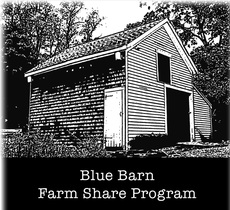Participating farms
|
FOOD SECURITY
The Massachusetts annual report card on hunger reveals that 700,000 children and adults do not know where their next meal is coming from—almost 80% higher than at the beginning of the last decade. Hunger is not a problem facing just those in poverty. 47% of those at risk for hunger in South Eastern Massachusetts earn too much to be eligible for government-provided emergency food assistance. Blue Barn targets this demographic. LOCAL FARMS ARE VITAL TO FOOD SECURITY The profit margin on produce, meat and eggs is not very high so the food prices on low volume farms (non-factory farms) must be high to make ends meet. Family farms are not doing very well in part because many people simply cannot afford to buy the food. While there has been a a boom in local agriculture over the last decade, local farming needs much more consumer support to thrive. Between 1978-2007, farms that engaged in direct consumer food sales represented only 5.5 percent of all farms, on average. Eating locally grown food is critically important to our environment. We can greatly impact our carbon footprint by offsetting the emissions released from transporting factory foods simply by supporting local agriculture. Additionally, local food preserves open space. When local farms are thriving, farmers are less likely to sell farmland for development. When you buy locally grown food, you're doing something proactive to preserve our landscape and food security. |

